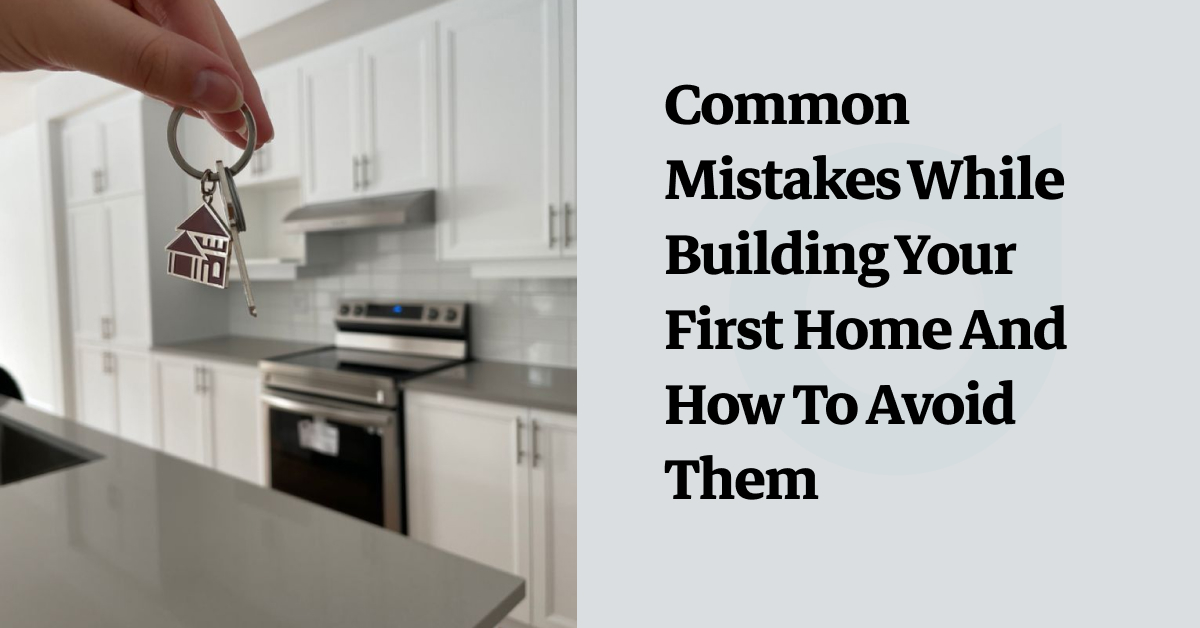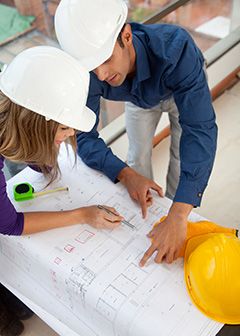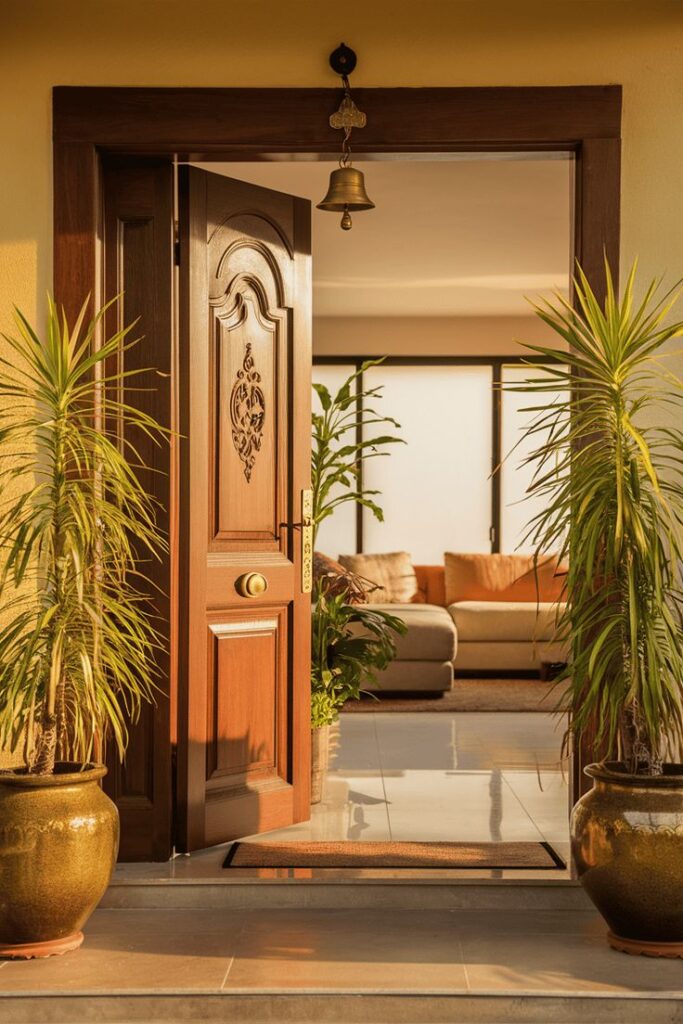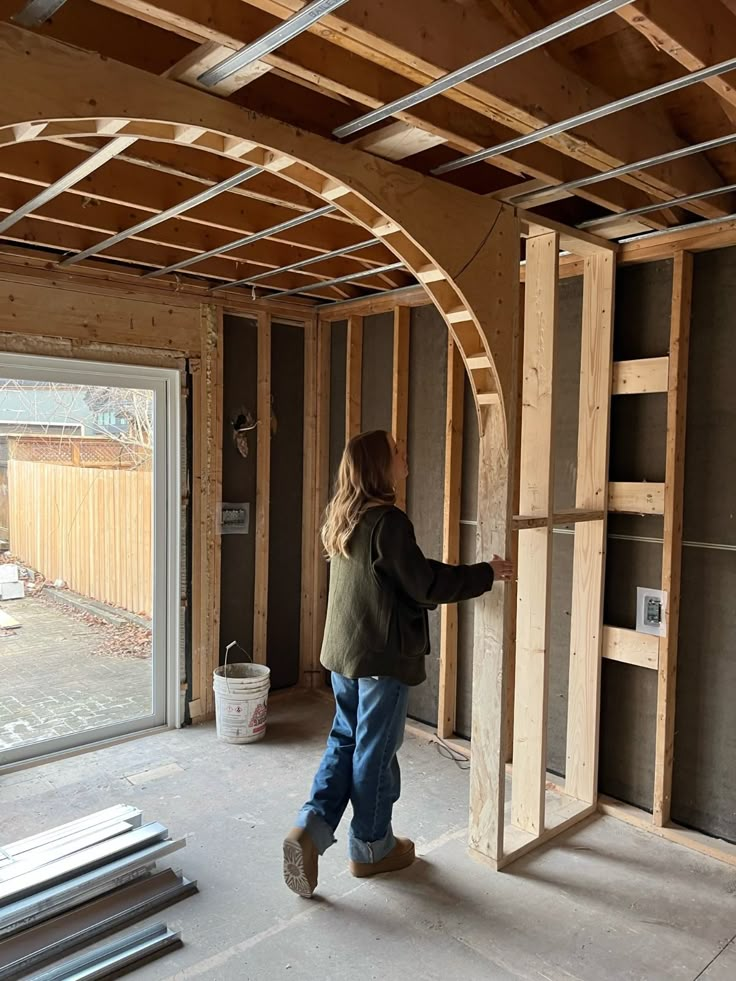
Mistakes are a part of life, but when it comes to building your home, even a small misstep can be costly and difficult to fix. Every detail matters, and avoiding common mistakes can save you both time and money.
So, is it possible to build a home without making expensive mistakes?
Absolutely! With the right guidance, you can plan and build your dream home without flaws. That’s where we come in – to help you steer clear of the most common home-building mistakes. Read till the end to build a perfect home without mistakes or regrets.
Poor Budget Planning or Lack Thereof
One of the common and easily the biggest mistakes first-time homeowners make is miscalculating or greatly underestimating the actual cost of building a home. Many focus only on the major expenses, such as land purchase, construction materials, and labor. However, they overlook several hidden costs that can add up quickly.
Hidden costs may come in the form of permits and approvals, utility connections, landscaping, interior finishing, and contingency funds for unexpected expenses.
The overlooked expenses can derail your budget and lead to financial stress during or after construction.

So, How To Avoid It?
- You should work with a financial planner or construction expert to create a comprehensive budget.
- You should consider setting aside at least 10-15% extra funds for unforeseen costs.
- Try getting multiple quotes from contractors and suppliers to compare pricing.
- Maintain a spending sheet and record all the expenses throughout the construction process.

Not Hiring the Right Professionals
One common mistake inevitably leads to another costly one. For instance, in an attempt to cut costs, some homeowners hire inexperienced contractors or forgo professional consultations altogether. In most cases, this often leads to poor workmanship and structural issues in the long run.
How To Avoid It?
- Researching and hiring reputable architects, contractors, and project managers.
- Checking your preferred professional’s previous work and client reviews.
- Make sure that all professionals you choose are licensed and insured.
Ignoring Vastu and Local Building Codes
In India, many believe that following Vastu Shastra leads to a harmonious living. Although Vastu is rooted in ancient Indian architecture, some of its principles align perfectly with modern architecture concepts like proper ventilation, efficient space planning, and natural light optimization.
Additionally, local building codes dictate construction norms that must be followed.

Steps to Avoid It
- If Vastu is important to you, consult a Vastu expert during the design phase. Usually, your architect would also be well-versed in basic Vastu Shastra.
- Make sure your home design adheres to municipal regulations to avoid legal issues.
- Get all the necessary approvals before starting construction.

Compromising on Quality to Save Costs
Opting for low-quality materials to save money might seem like a smart decision at first, but it often backfires. Cheaper materials wear out faster, leading to frequent repairs and higher maintenance costs over time. So to conclude, you’ll end up spending more than you initially saved.
How To Avoid It?
- Consider investing in high-quality materials for critical structures like foundations, roofing, and plumbing.
- Prioritize durability and energy efficiency in building materials.
- Talk to professionals and find cost-effective yet reliable alternatives.
Poor Space Planning
Poor space planning can make a home feel either too cramped or strangely empty, leading to daily inconveniences and regrets. Without efficient space utilization, essential areas like the kitchen, storage, and living spaces may become cluttered, while other sections remain underused.
Poor space planning often results in a home that doesn’t function well for the family’s needs, making little tasks more difficult.

Steps to Avoid It
- Communicate your needs to an architect to optimize space planning.
- Ensure proper placement of doors and windows for ventilation and natural light.
- Focus on functional spaces rather than unnecessary extra rooms.

Being Stingy on Safety Features
Many families focus on looks and cost when building a home but often forget simple safety features that can prevent accidents and keep everyone secure. Thinking about safety from the start saves money on future repairs and ensures your family lives in a secure, worry-free home.
How To Get This Right?
- Install anti-skid tiles in bathrooms and balconies.
- Ensure sturdy railings for balconies and staircases.
- Consider security systems like CCTV cameras and smart locks.
- Have multiple emergency exits and fire safety measures in place.
To Conclude,
Building your first home is a big deal and it’s definitely not easy. It can be stressful at times but with proper planning, you can make it less difficult. Many homeowners make common mistakes that can be easily avoided with the right approach. After all, a well-planned plan is a smart investment for your future.
So the best course of action is to take your time. Take your time to research, set a realistic budget, and work with experienced professionals. A strong, well-built home is a place where your family can live happily for years to come! So, here’s to a bright future!
Frequently Asked Questions
How much extra budget should I keep aside for unexpected expenses?
It’s recommended to set aside 10-15% of your total budget for unforeseen costs such as material price hikes, last-minute design changes, and unexpected site issues.
How can I ensure my home construction stays within budget?
Plan a detailed budget with expert help, get multiple contractor quotes, track expenses regularly, and avoid frequent design modifications.
What factors should I consider when selecting a plot for my home?
Look for good connectivity, basic infrastructure (water, electricity, roads), legal clearance, future development potential, and compliance with local building regulations.
Why is hiring an experienced contractor important?
A skilled contractor ensures quality construction, timely completion, and cost control, reducing the risk of rework and structural issues.
What are some essential safety features I should include in my home?
Install anti-skid flooring, proper ventilation, fire safety measures, sturdy railings, and security systems like CCTV cameras and smart locks.
Is it necessary to follow Vastu Shastra while building a home?
While it’s a personal choice, many homeowners follow Vastu principles for positive energy and better resale value. If important, consult an expert during the design phase.
How can I ensure my home is future-proof?
Plan for expansion, energy efficiency (solar panels, rainwater harvesting), home automation, and adaptable designs to meet future needs.

